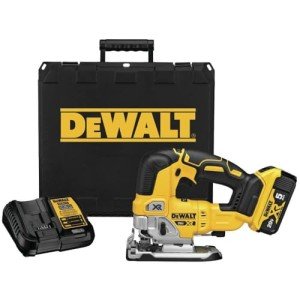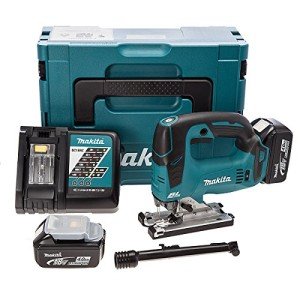Entrada del blog por Sally Kennion
Power Tools Basics - Why You Shouldn't Buy the Wrong Ones
No matter if you're an experienced professional or a beginner DIYer, having the right power tools can make a huge difference. Finding the right tools for your needs is a challenge with numerous options to choose from.
There are many factors to consider before making a purchase, including price, features you want and warranty programs. Utilize this buyer's checklist to make an informed choice that meets your needs and budget well.
Low-Quality or cheap power tools-Quality Options
Power tools are essential for a myriad of projects. But they can also be a source of frustration, waste, and even risk if you purchase the wrong tools. It's not always easy to select the correct power tool, especially when there are so many options.
To get the most out of your power tools, it is important to choose a reputable brand with a strong track of performance. It is important to research and read reviews to determine how they perform and which ones are the most durable. Also, look at the warranty coverage to determine if it is generous.
High-quality power tools typically have a higher price tag than less expensive models, however they're more likely last longer and deliver better results. It's worth the investment if you're planning on using them often.
You can find high-quality power tools at a low cost by purchasing secondhand or refurbished tools. Marketplaces on the internet like Craigslist and Facebook Marketplace are great places to begin, however it's important to inspect the tool thoroughly prior to purchasing. You can also find bargains at local garage sales and estate sales. Be sure to ensure that the tool is in good condition and that it is compatible with your preferred battery type.
 Another option is to buy power tools from a retailer that has rewards programs. This can save you money in the end and also help you build your tool collection quicker. In addition to rewards programs, many retailers offer discounts during the holiday season or for new customers.
Another option is to buy power tools from a retailer that has rewards programs. This can save you money in the end and also help you build your tool collection quicker. In addition to rewards programs, many retailers offer discounts during the holiday season or for new customers.
Finally, you should take into consideration the reputation of the manufacturer as well as its the history of innovation. Established brands are more likely than the newer brands to offer reliable customer service and are able to stand behind their products. Look for features that will benefit you, like longer warranty, or a wide range of products.
The most well-known power tools for DIYers include Dewalt, Ryobi, Bosch, Makita, and Ridgid. Dewalt's cordless platform is highly regarded, for instance with its unique Power Detect feature and Power Stack battery packs for pouch cells. Tools with HF are also popular, but they aren't as durable as high-end tools manufactured by other companies.
The Worst Tool for Your Job
Power tools can help us achieve a wide variety of tasks at home and on projects, providing enhanced efficiency, precision, and safety to a variety of tasks. They could be dangerous if they are used incorrectly. A tool that is not suitable for a specific job could have a variety of effects, from burns and injuries to wasting materials and poor results. To avoid these hazards it's essential to familiarize yourself with the basics of power tools and how to purchase and store them effectively.
A power tool is a handheld device that is powered by an electric motor to carry out tasks such as drilling holes or cutting through materials or sanding surfaces to a smooth finish. They can be corded as well as cordless, and they can have an array of accessories, including drill bits and discs for sanding. Some tools come with batteries built-in that increase power and speed. This allows the tool to be used for longer periods of time without needing to recharge.
It's important to buy tools online power tools from trusted brands, known for their quality and durability. Pick models that have strong construction and long battery life. This includes models from Makita and Bosch. You should also be certain to purchase the appropriate accessory and safety equipment such as gloves, power Tool goggles and earplugs, in accordance with the job you're working on.
Store your power tools in a secure place, away from moisture or extreme temperatures. It is easy to keep your tools organised in a cabinet, toolbox or pegboard.
The right tool for the job is a vital part of workplace safety and efficiency making sure you get the most out of your investment and get high-quality results. Many people make the error of purchasing the wrong power tool for a particular job due to being unaware of the task, are not aware, or are in the process of performing improvised. This can lead to grave consequences. The following 10 power tools mistakes are a good reminder of the risks.
 You are buying the wrong brand
You are buying the wrong brand
The wrong power tool can result in higher costs in the near future, and can also affect the safety and quality. No matter if the task requires basic drills or an advanced cordless tools, poor-quality or less expensive options could quickly cost more in terms of repair costs, replacement parts and upgrades. A bad tool can negatively impact the price of resales and make it harder to sell later on.
For many home improvement and DIY enthusiasts, deciding which power tools to purchase can be a daunting task. The Home Depot, Lowe's or Amazon can be overwhelming with all the choices. You may feel confused and unsure. There are certain power tools that are necessary for everyone (power drills), but when you're more than a hobbyist or someone who tackles home improvement projects frequently and regularly, then you'll need more specialized equipment. The right brand of power tool can make a huge difference.
When choosing power tools on line for resales it is essential to select brands that have a proven track record of endurance and performance as well as a strong demand in the market. For most, this means avoiding the cheaper options which are more likely to fail, overheat, or cause injuries. Instead, you should look at higher-end equipment that may cost more, but will provide the best power tool mix of features, reliability and performance for amateur and professional users alike.
Although there are many choices available it is essential to keep up-to-date with new products and technological advances as you select power tools to stock your inventory. You'll be able to create an inventory that is able to meet the changing needs of the market, while guaranteeing a high-demand and resale value for your business.
It's also important to keep in mind that certain power tool brands are only sold at certain locations, or Online tool Shops (delphi.larsbo.Org). If you're looking to purchase DeWalt, Dremel, Black + Decker, Ryobi, or any other big brands, look for the official retailer to ensure that your purchase is a authentic, new power tool backed by a manufacturer's guarantee.
Buying the wrong battery
When it is power tools, they can be like Gonzales, zipping through work faster than you could say, "Bob is your uncle." But a bad battery choice can spell disaster. There are several reasons to choose a name-brand batteries, including better performance, a longer life and lower replacement costs.
A low-quality battery might not be able to provide enough power to complete the task at hand. It can also cause erratic operation or malfunctions, such as inability to charge, or even explosions and fires. Certain of these issues can be solved by properly charging and storing the battery, however, others require a new one. A wrong type of battery can also cause a tool to malfunction or shut down when in use, which can lead to frustration and time wasted.
Batteries are available in a range of amperages and voltages that range from the old nickel-cadmium battery used in older power tools to the more modern lithium Ion versions. Most power tools are powered by lithium-ion batteries due to their superior energy density and lightweight. They also have a slow self-discharge rate. The incorrect voltage or amperage of the battery could cause problems such as insufficient power, damage, or explosions to the tool, charger and the tool itself.
Modern power tools communicate with batteries using electronic chips that are able to detect the required amps and voltages. Batteries that do not follow the correct protocol for communication could result in a poor performance of the tool, a lower battery life, and possibly damage to the battery.
The composition of a battery can also affect its lifespan. Certain kinds of batteries are better designed for warmer climates which may reduce their efficiency and reduce the number of charging cycles. Other factors can negatively impact the longevity and efficiency of batteries, including insufficient maintenance, overcharging and extreme temperatures.
It is best to stick with the manufacturer-designed battery for a given tool and model. This will ensure seamless connectivity and reliable power delivery as well as the highest level of security and peace of mind. Contractors should also be wary of buying knock-off or counterfeit batteries, which are not tested and listed according to the same safety standards as an authentic OEM product. These fake or knock-off batteries are usually sold at a much lower cost but could pose serious safety risks.